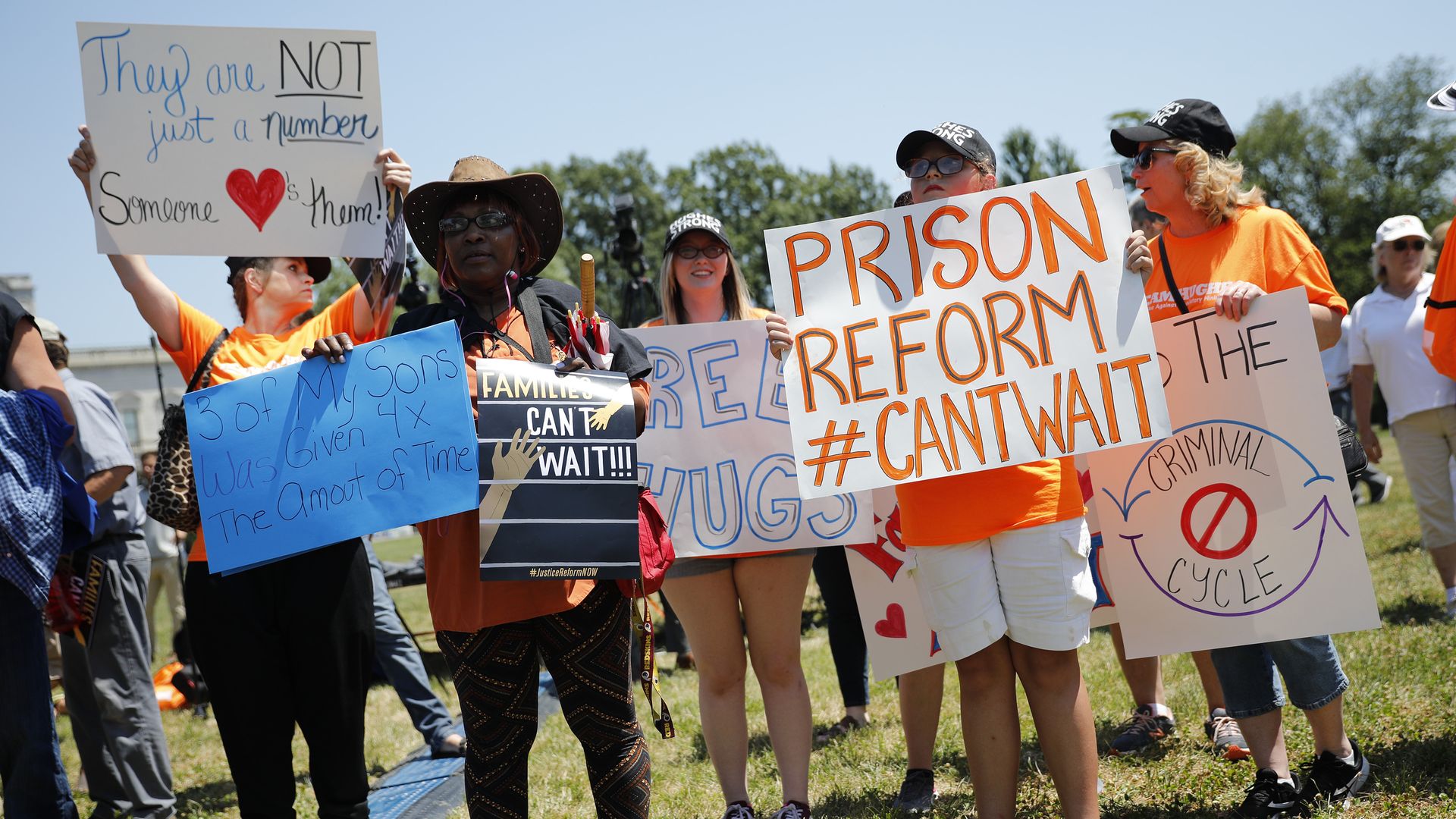Study shows Black offenders more likely to get federal life sentences
Add Axios as your preferred source to
see more of our stories on Google.

Protesters call for criminal justice reform outside the U.S. Capitol in Washington, D.C. Photo: Aaron P. Bernstein/Getty Images
Black Americans are more likely to get federal life sentences than whites or Latinos, a new study has found.
Why it matters: The analysis, published recently in Criminology, further illustrates the racial disparities of federal sentencing at a time when advocates are pushing for sentencing reforms for nonviolent offenders.
Details: An examination of more than 366,000 offenders convicted and sentenced in 90 federal district courts from 2010 to 2017 found racial disparities around life sentences targeting Black offenders. (The research excluded offenses related to immigration law.)
- More than 4,800 of all offenders were eligible for life imprisonment — and almost 1,200 received life sentences, the study found.
- Black offenders accounted for fewer than a third of all cases but constituted nearly half of those eligible for life sentences.
- White offenders accounted for more than a third of all cases but constituted less than a quarter of those eligible for life sentences.

Between the lines: Hispanic offenders were more likely to be eligible for life sentences than white offenders, yet half as likely as Black offenders to receive life sentences.
- Just why wasn't clear — and how Hispanics identified themselves prior to changes with the 2020 census may have affected results.
- Researchers suggest race and ethnicity are indirectly related to modes of conviction, mandatory minimums and departures from sentencing guidelines.
What they're saying: “Two out of three people serving life terms are defendants of color, and some believe that life sentences are fraught with racial bias,” Brian D. Johnson, a University of Maryland criminology and criminal justice professor who led the study, said in a statement.
- “If there are racial disparities in this type of sentencing, we must investigate the mechanisms that contribute to them.”
The intrigue: The study comes as advocates in various cities seek to advance police and criminal justice reforms amid rising crime.
- Rev. Markel Hutchins, CEO of MovementForward, told Axios the study showed that Black leaders, police organizations and lawmakers need to work together to end racial disparities.
- "We have to deal with issues of systematic racism and inequity ... from those who get the most speeding tickets to those who get the healthiest sentences for federal crimes."
Don't forget: The First Step Act, signed by President Trump, reduced some federal sentences and gave judges more sentencing flexibility.
- The bill led to the release of at least 3,000 inmates by the end of 2019, according to NBC News.
- Axios reported that Trump later told people he regretted following some of son-in-law and senior adviser Jared Kushner's political advice on criminal justice reform.
